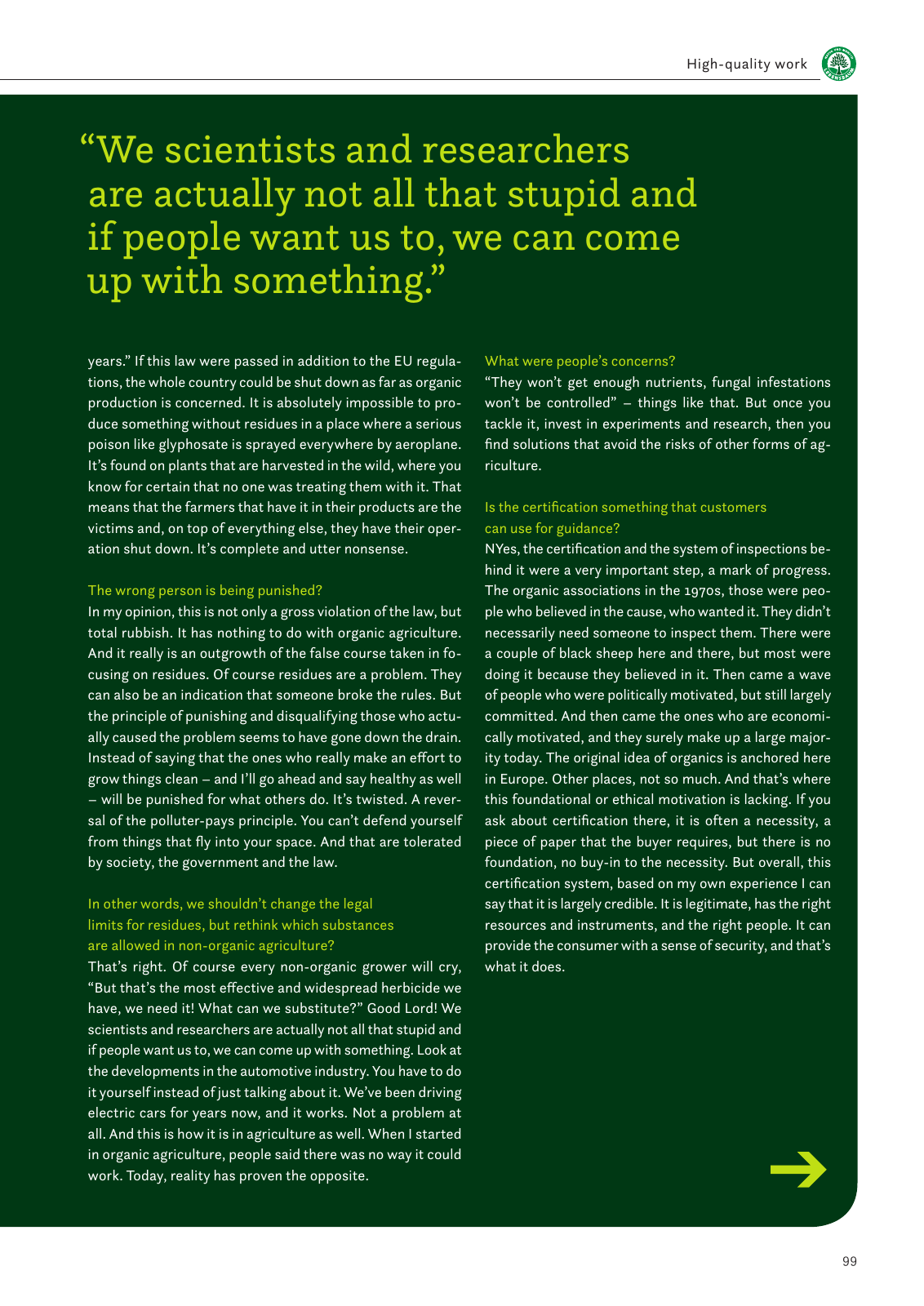99 years If this law were passed in addition to the EU regula tions the whole country could be shut down as far as organic production is concerned It is absolutely impossible to pro duce something without residues in a place where a serious poison like glyphosate is sprayed everywhere by aeroplane It s found on plants that are harvested in the wild where you know for certain that no one was treating them with it That means that the farmers that have it in their products are the victims and on top of everything else they have their oper ation shut down It s complete and utter nonsense The wrong person is being punished In my opinion this is not only a gross violation of the law but total rubbish It has nothing to do with organic agriculture And it really is an outgrowth of the false course taken in fo cusing on residues Of course residues are a problem They can also be an indication that someone broke the rules But the principle of punishing and disqualifying those who actu ally caused the problem seems to have gone down the drain Instead of saying that the ones who really make an effort to grow things clean and I ll go ahead and say healthy as well will be punished for what others do It s twisted A rever sal of the polluter pays principle You can t defend yourself from things that fly into your space And that are tolerated by society the government and the law In other words we shouldn t change the legal limits for residues but rethink which substances are allowed in non organic agriculture That s right Of course every non organic grower will cry But that s the most effective and widespread herbicide we have we need it What can we substitute Good Lord We scientists and researchers are actually not all that stupid and if people want us to we can come up with something Look at the developments in the automotive industry You have to do it yourself instead of just talking about it We ve been driving electric cars for years now and it works Not a problem at all And this is how it is in agriculture as well When I started in organic agriculture people said there was no way it could work Today reality has proven the opposite What were people s concerns They won t get enough nutrients fungal infestations won t be controlled things like that But once you tackle it invest in experiments and research then you find solutions that avoid the risks of other forms of ag riculture Is the certification something that customers can use for guidance NYes the certification and the system of inspections be hind it were a very important step a mark of progress The organic associations in the 1970s those were peo ple who believed in the cause who wanted it They didn t necessarily need someone to inspect them There were a couple of black sheep here and there but most were doing it because they believed in it Then came a wave of people who were politically motivated but still largely committed And then came the ones who are economi cally motivated and they surely make up a large major ity today The original idea of organics is anchored here in Europe Other places not so much And that s where this foundational or ethical motivation is lacking If you ask about certification there it is often a necessity a piece of paper that the buyer requires but there is no foundation no buy in to the necessity But overall this certification system based on my own experience I can say that it is largely credible It is legitimate has the right resources and instruments and the right people It can provide the consumer with a sense of security and that s what it does We scientists and researchers are actually not all that stupid and if people want us to we can come up with something High quality work

Hinweis: Dies ist eine maschinenlesbare No-Flash Ansicht.
Klicken Sie hier um zur Online-Version zu gelangen.
Klicken Sie hier um zur Online-Version zu gelangen.